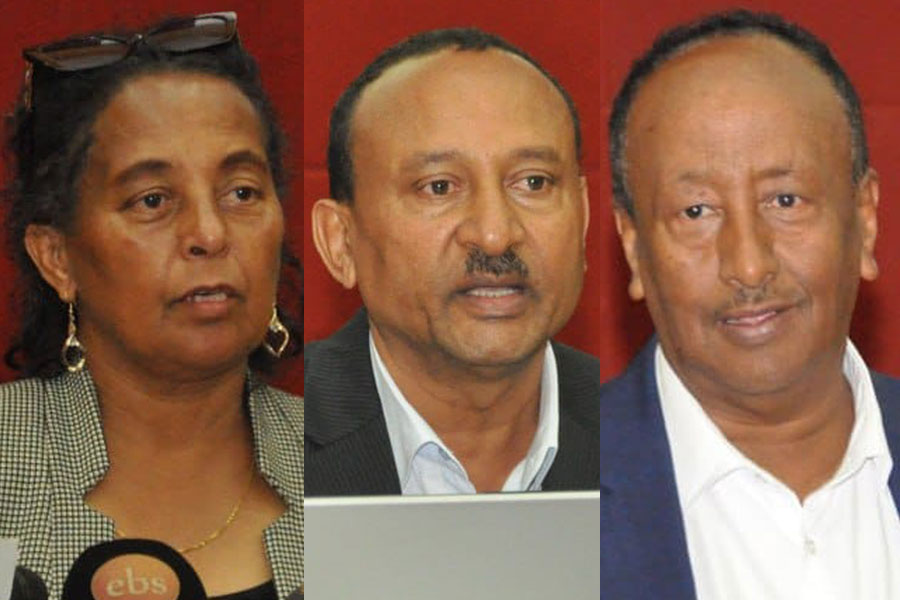
Fortune News | May 11,2019
Jan 7 , 2023
By Bekan Bekele
Corruption, typically involving bribery, is not a new concept in the world. According to World Economic Forum, it costs developing countries 1.26 trillion dollars annually. The figure roughly took two percent of the global GDP. It seeps from low-level public servants accepting petty bribes to national leaders stealing millions of dollars.
In developing countries such as Ethiopia, morality is not the main problem. It leads to an uneven distribution of wealth when the small business sector faces unfair competition from larger companies having an established illegal connection with government officials. Through this network, an inefficient allocation of resources persists, unqualified companies get the contracts, and poor quality of infrastructural development could lower the overall living standard of the populace.
It occurs when a specific individual, government official, or organisation exploits illegitimate means of maximising their personal or commercial benefits with the ability to elicit whatever means available.
Global Infrastructure Anti-Corruption Center (GIACC) has outlined some possible factors that facilitate the practice. According to GIACC, the nature of infrastructural projects under a complex contractual structure with diverse involvement lacks transparency. The extent of government involvement is greater with the absence of anti-corruption measures.
In developed and developing countries, officials' involvement in the practice is undeniable. Such involvement may occur when political figures extort bribes or require projects to be carried out for personal benefit. These problems are reinforced when a consistent anti-corruption policy is missing within the governmental system. Insufficient reporting of prosecution and the vulnerability of project owners' to bribery is considered significant factor for the misdeed.
Corruption is complex and encompasses a multitude of variables.
The political and economic environment can influence corruption. The more a country's economic activity is regulated and restricted, the greater the authorities' decision-making to circumvent bribery. Ineffective and unclear regulations invite regular individuals to pay bribes to speed up the bureaucratic processes. Exceptionality in regulations gives discretionary power to officials the potential to involve more.
A low wage has been one of the leading causes of corruption. The socioeconomic status of officials is a factor, as they can no longer control the effect due to their lower income. It is strongly influenced by the low salaries of public sector employees or state officials who try to improve their financial situation through bribes.
Job satisfaction has often been cited as a significant cause. A public employee's salary level influences the acceptance of bribes; the higher the salary level, the less likely a person is to be corrupt. But, it is tough to determine if higher wages reduce the range. The results of empirical studies in Africa have demonstrated the effects of higher salaries are either unclear or nonexistent.
Solving the issue of wages can only take the matter as far as a single solution. Most economists agree against salary top-ups because of the multi-faceted nature of corruption and its potential inflationary issues.
The central premise of increased wages would significantly value their position to the extent of bribes. Well-paid officials would not seek alternative sources of revenue. According to Transparency International, salary top-ups create distortions in the labour market, and the pay balance may create inflationary pressures affecting the macroeconomy. These distortions could make opportunistic behavior in governmental offices, ranging from nepotism of civil service reforms, which is crucial for public sector employees.
For any project to be practical implementing anti-corruption measures is necessary, together with the enforcement of robust investigation and prosecution of the corrupt. The lack of a coordinated approach prohibits steps from addressing the issue..
PUBLISHED ON
Jan 07,2023 [ VOL
23 , NO
1184]


Fortune News | May 11,2019

Fortune News | Jan 09,2021

Editorial | Jun 15,2024

Sunday with Eden | Jul 18,2020

Radar | Dec 02,2023

Sunday with Eden | Feb 10,2024


Sunday with Eden | Dec 31,2022

Editorial | Jan 15,2022

Verbatim | Jul 20,2025

Photo Gallery | 174939 Views | May 06,2019

Photo Gallery | 165164 Views | Apr 26,2019

Photo Gallery | 155429 Views | Oct 06,2021

My Opinion | 136746 Views | Aug 14,2021

Dec 22 , 2024 . By TIZITA SHEWAFERAW
Charged with transforming colossal state-owned enterprises into modern and competitiv...

Aug 18 , 2024 . By AKSAH ITALO
Although predictable Yonas Zerihun's job in the ride-hailing service is not immune to...

Jul 28 , 2024 . By TIZITA SHEWAFERAW
Unhabitual, perhaps too many, Samuel Gebreyohannes, 38, used to occasionally enjoy a couple of beers at breakfast. However, he recently swit...

Jul 13 , 2024 . By AKSAH ITALO
Investors who rely on tractors, trucks, and field vehicles for commuting, transporting commodities, and f...

Oct 18 , 2025
The political establishment, notably the ruling party and its top brass, has become p...

Oct 11 , 2025
Ladislas Farago, a roving Associated Press (AP) correspondent, arrived in Ethiopia in...

Oct 4 , 2025
Eyob Tekalegn (PhD) had been in the Governor's chair for only weeks when, on Septembe...

Sep 27 , 2025
Four years into an experiment with “shock therapy” in education, the national moo...

Oct 18 , 2025 . By NAHOM AYELE
In a sweeping reform that upends nearly a decade of uniform health insurance contribu...

Oct 18 , 2025 . By BEZAWIT HULUAGER
A bill that could transform the nutritional state sits in a limbo, even as the countr...

Oct 18 , 2025 . By SURAFEL MULUGETA
A long-planned directive to curb carbon emissions from fossil-fuel-powered vehicles h...

Oct 18 , 2025 . By BEZAWIT HULUAGER
Transaction advisors working with companies that hold over a quarter of a billion Bir...